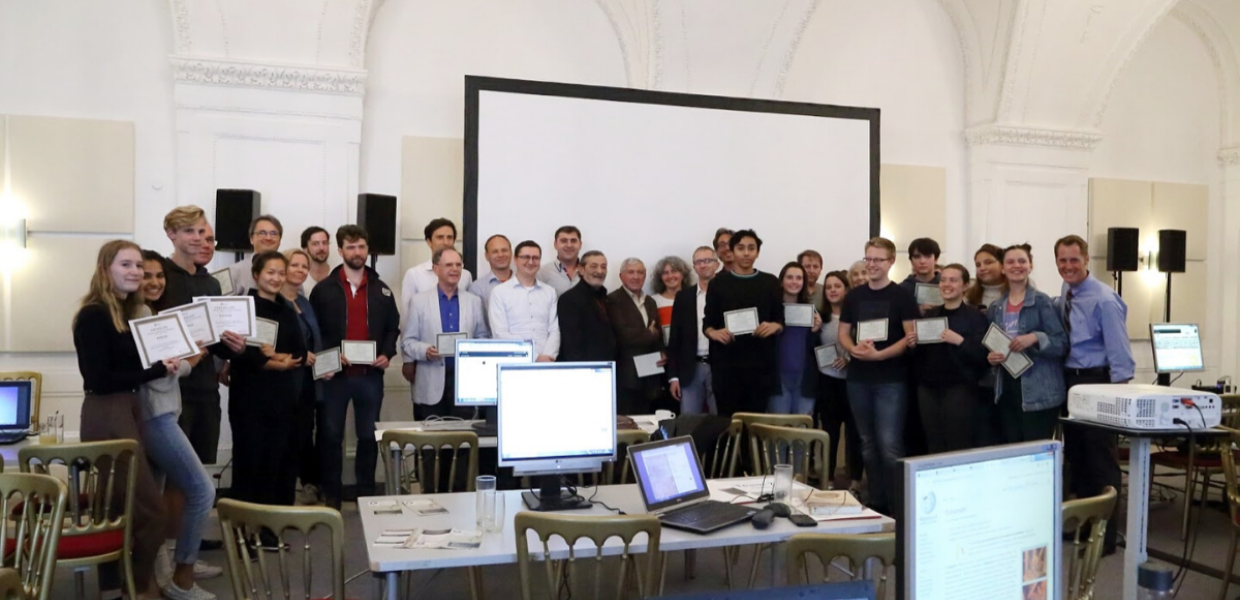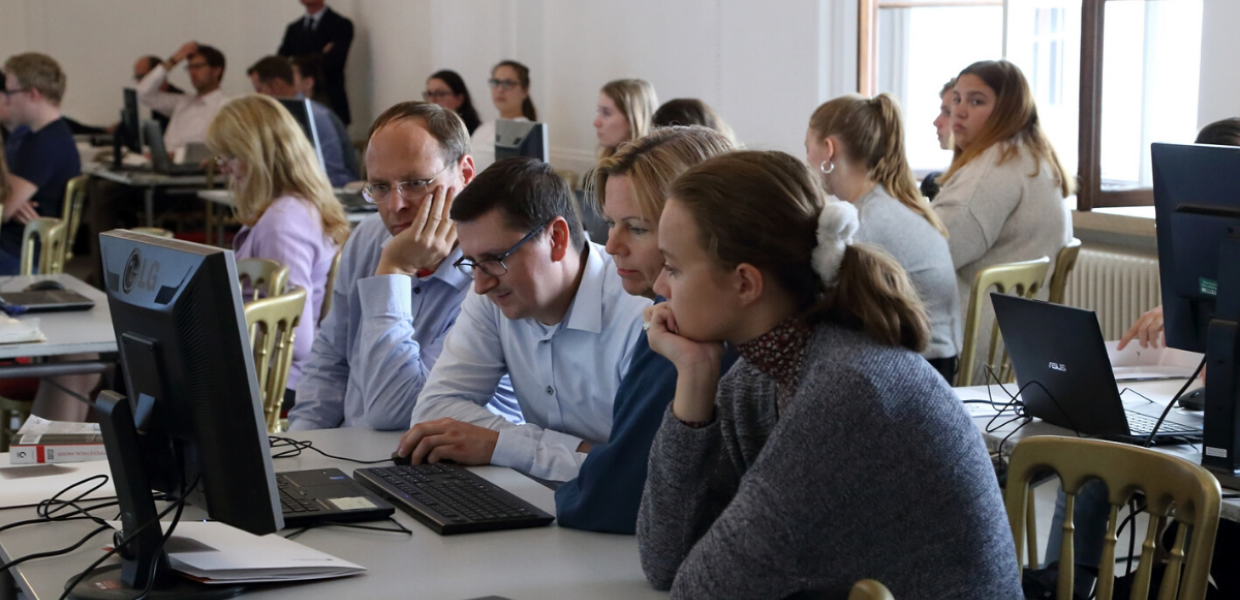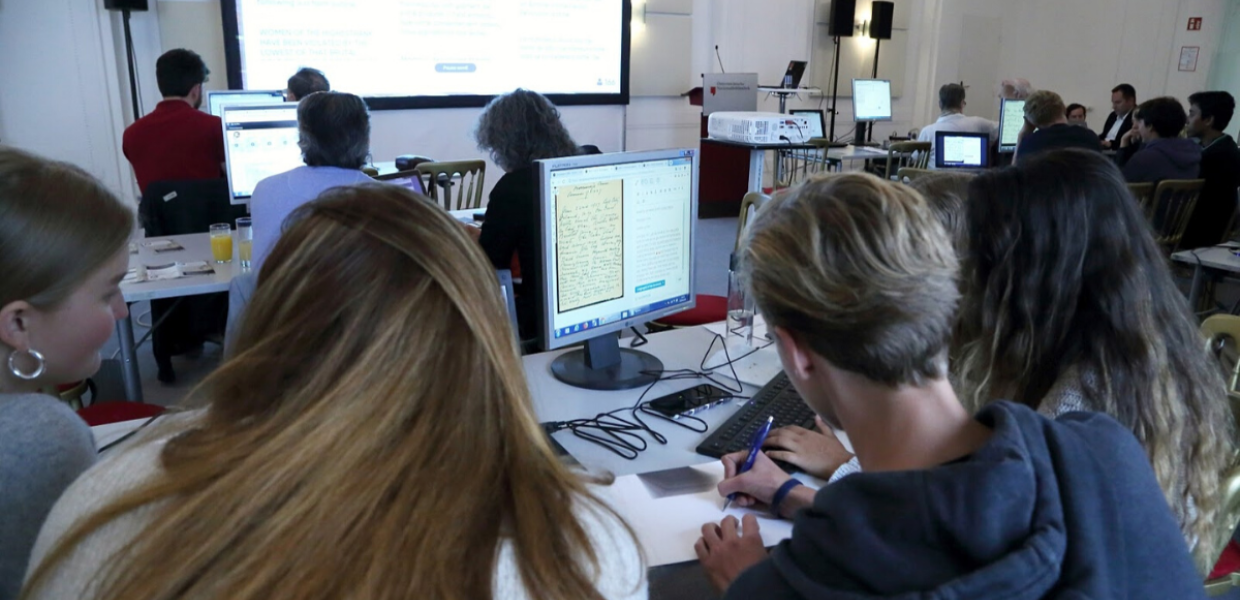Enrich Europeana: launching the renewed Transcribathon platform
The Enrich Europeana platform aims to make it possible for users to transcribe and enrich a wide variety of digital heritage collections. In this guest post, Ting Chung of the Austrian National Library - a project partner in Enrich Europeana - gives us an update on the launch of the project’s new crowdsourcing tool for transcribing, annotating, and georeferencing historical documents.

- Title:
- Transcribathon participants
- Creator:
- Ingrid Oentrich
- Date:
- 2019
- Institution:
- Austrian National Library
- Country:
- Austria
- Copyright:
- CC BY



